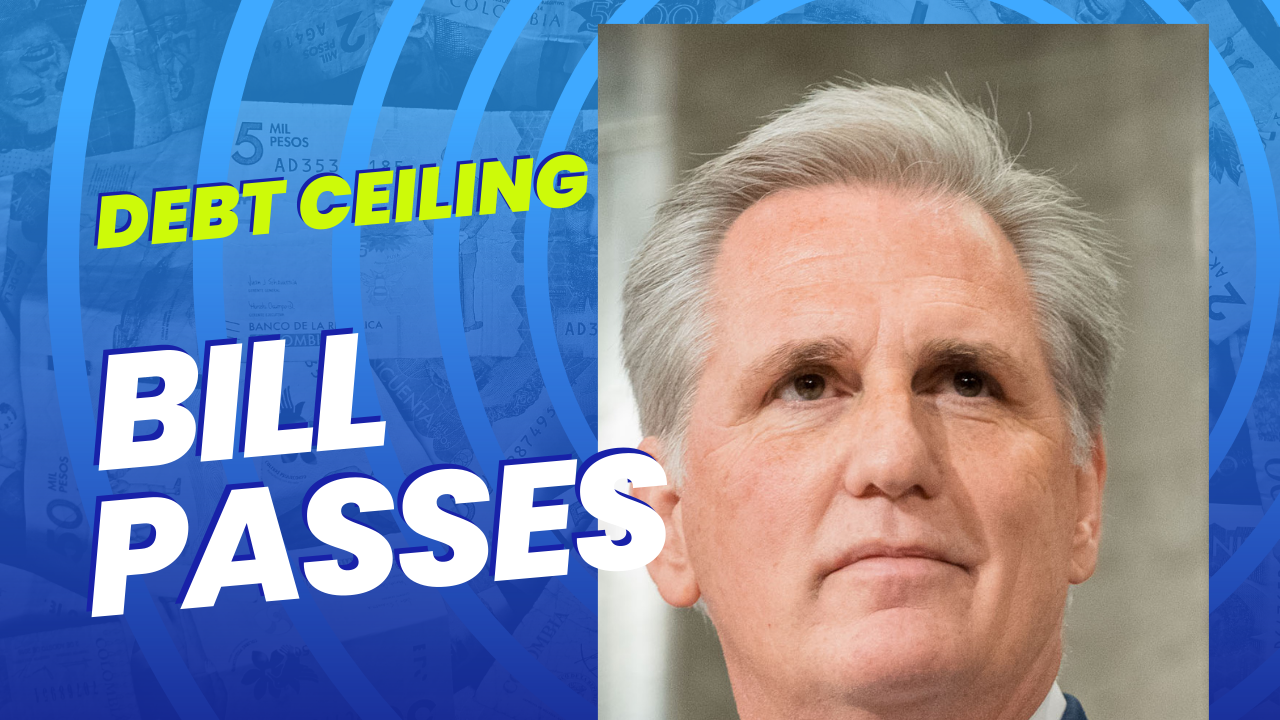Legislative
Debt ceiling bill passes
The Fiscal Responsibility Act, or debt ceiling bill, passed the House of Representatives and heads to the Senate.

The House of Representatives yesterday passed the Fiscal Responsibility Act, otherwise known as the Debt Ceiling Bill.
How the debt ceiling bill passed
The vote was 314 for to 117 against, with four apparent absences, according to The Daily Caller and Twitter influencer Jamie Dupree.
After this, the bill then went immediately to the Senate, which moved at once to clear some necessary procedural steps.
The bill followed the outlines of the “agreement in principle” that Rep. (and House Speaker) Kevin McCarthy (R-Calif.) announced Saturday.
It also retains its most controversial feature: outright suspension of the debt ceiling until January 2, 2025. (Presumably the 119th Congress will start its term then.) And perhaps as Rep. Marjorie Taylor Greene (R-Ga.) said yesterday, the bill “encourages” Congress to pass twelve separate appropriations bills, one for each Cabinet department.
The bill has some spending caps – but, true to the alarm that Rep. Nancy Mace (R-Ga.) sounded, those caps do rise in the fiscal years to come. Rep. Byron Daniels (R-Fla.), on Tuesday, seconded everything Rep. Mace said of it, again according to The Daily Caller.
Riders
The bill has several riders that, left-wing critics say, weaken environmental regulation and permitting. For example, it specifically orders the Secretary of the Army to approve all permits for the Mountain Valley Pipeline. That approval must come within three weeks of the bill passing. This is the “carve-out” to please Sen. Joe Manchin (D-W.Va.), who tried to pass this specific permitting reform before. But his Energy Independence and Security Act never got out of the Senate. In March, Sen. Tim Kaine (D-Va.) threatened to push to strip that provision out, according to Roll Call.
Furthermore the bill contains other riders that weaken the National Environmental Policy Act. It requires completion of environmental impact assessments within a year, and environmental impact statements within two years. That could become directly relevant to the Space Exploration Technology Corporations Starship development project. An April 20 test flight caused moderate to severe damage to SpaceX’ launch site at Starbase (formerly Boca Chica), Texas. Five environmental and “cultural heritage” groups sued the FAA, seeking a declaratory injunction to require a full environmental impact statement from SpaceX. (The company has since filed to intervene in the case. Read the full complaint here and the motion to intervene here.) SpaceX has never had to complete a full environmental impact statement for the facility.
Finally, the bill attempts to “claw back” $28 billion in unspent COVID relief funds, and “cuts” $1.4 billion from the budget of the Internal Revenue Service.
Terry A. Hurlbut has been a student of politics, philosophy, and science for more than 35 years. He is a graduate of Yale College and has served as a physician-level laboratory administrator in a 250-bed community hospital. He also is a serious student of the Bible, is conversant in its two primary original languages, and has followed the creation-science movement closely since 1993.
-

 Accountability2 days ago
Accountability2 days agoWaste of the Day: Principal Bought Lobster with School Funds
-

 Constitution2 days ago
Constitution2 days agoTrump, Canada, and the Constitutional Problem Beneath the Bridge
-

 Executive17 hours ago
Executive17 hours agoHow Relaxed COVID-Era Rules Fueled Minnesota’s Biggest Scam
-

 Civilization16 hours ago
Civilization16 hours agoThe End of Purple States and Competitive Districts
-

 Civilization4 days ago
Civilization4 days agoThe devil is in the details
-

 Executive4 days ago
Executive4 days agoTwo New Books Bash Covid Failures
-

 Civilization3 days ago
Civilization3 days agoThe Conundrum of President Donald J. Trump
-

 Executive4 days ago
Executive4 days agoThe Israeli Lesson Democrats Ignore at Their Peril









What needs to be done is each agency and program need to be funded by individual bills citing the US Constitution authorization and explaining HOW it is authorized. I suspect at least 50% of the budget will disappear since they are specific Welfare and/or have no authorization to be done at the Federal level of government. Consider, what is called specific Welfare is the responsibility of the States due to different needs of different groups of the population.